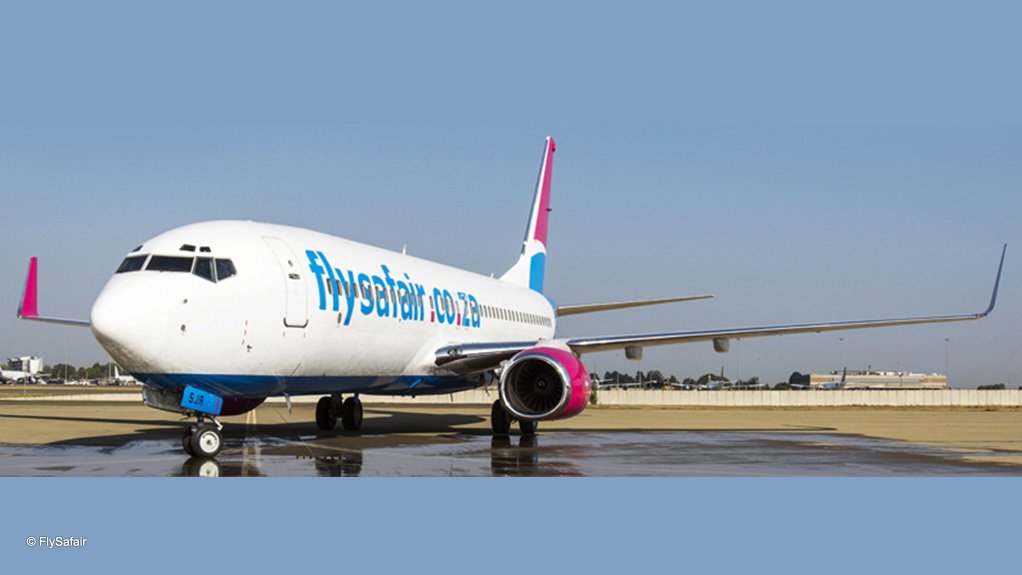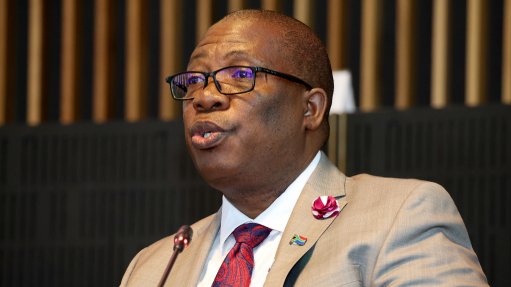Solidarity notes difficult conditions FlySafair pilots have been subjected to
Trade union Solidarity has clarified in an open letter addressed to the public that the dispute between airline FlySafair and its pilots has been long coming and that the recent strike by the pilots followed the exhaustion of every other avenue of negotiation.
The strike marks the longest pilot strike in South Africa’s history, which Solidarity says follows years of the pilots having remained silent and trusting promises of stability and fairness.
Initially, FlySafair’s pilots intended to strike only for one day to signal their dissatisfaction and demonstrate the seriousness of their concerns; however, this was not met with a willingness to engage, according to Solidarity.
“What was meant to be a measured act of protest became a long and painful standoff, not by their design, but by the company’s decision to escalate,” the union states.
Solidarity assures the public that the strike is not about greed, but about safety and recognition. The professionals who have sacrificed years of their lives and small fortunes in training now find themselves working under conditions that disregard their wellbeing, the union adds.
The pilots’ core concern relates to the forced implementation of a new, algorithm-driven rostering system. While the technology promised efficiency, the reality has been minimal rest, erratic schedules and zero regard for basic human needs.
The pilots asked for one weekend off a month and the algorithm responded negatively to this request, Solidarity explains.
The union motivates that aviation is not a factory and pilots are not products of a shift system. “Predictability, rest and mental wellbeing are not luxuries, but necessities.”
The strike also highlights a deeper problem with FlySafair – a growing culture of silence and fear, Solidarity says, citing pilots who find concerns about fatigue, safety and attrition are routinely dismissed or met with intimidation.
Many line pilots have been flying between 85 and 100 hours a month, while FlySafair’s reports quote 63 hours a month. Solidarity says this does not include ground duty time, standby periods or training, which, added to the flying hours, amount to more than 180 hours a month, with 200 being the absolute legal maximum.
“We are aware that FlySafair has obtained a legal dispensation to fly pilots up to 120 hours a month. We believe this is unacceptable in a safety-critical industry, and we have raised these concerns repeatedly only to be ignored.
“We know pilots are denied leave because there are not enough crew. We are rostered for back-to-back duties that disrupt sleep cycles and family time, with burnout as a result,” Solidarity says, quoting the pilots’ pleas.
Moreover, Solidarity took the opportunity to address the misconception that pilots are paid between R1.8-million and R2.4-million a year, which is untrue for the majority of these professionals. The union says most pilots earn significantly less, especially those working for FlySafair, which still offers salaries 10% below pre-Covid-levels.
This despite FlySafair having grown to become one of South Africa’s most successful carriers, flying up to 190 flights a day with high load factors and strong market share.
Additionally, FlySafair pilots are bemoaning the fact that they are flying without loss-of-licence cover and proper disability protection.
Solidarity says that, while the pilots are well aware of the broader economic struggles facing South Africa and jobs are scarce, fair treatment and responsible employment practices matter, especially given that well-rested pilots ensure the safe travels of passengers.
The pilots ultimately wish for a predictable and humane roster that allows them to live healthy lives; fair and competitive salaries; a voice in decisions that impact lives and safety; and respect for the responsibility they carry.
FLYSAFAIR STATEMENT
In a statement issued on July 27, FlySafair says the implementation of fixed scheduling rules would substantially limit the airline’s ability to roster pilots efficiently, which could, in turn, negatively impact passengers and the wider crew.
FlySafair, as a constructive alternative, proposed the formation of an independently chaired joint roster committee comprising both pilot and company representatives. This body would be empowered to test and refine proposed scheduling rules in a live environment before implementation, ensuring that any changes were carefully evaluated for their impact on productivity, safety and overall wellbeing.
“We hoped that this proposal, which was designed to give pilots a meaningful say in shaping their roster parameters, would be well received,” said FlySafair chief marketing officer Kirby Gordon, adding his disappointment that Solidarity did not choose to pursue this collaborative approach.
In a subsequent statement, FlySafair said it matters most to the company to derive an outcome that protects the long-term health of the business and supports the wellbeing of all its employees. The company also hopes to restore unity in a team that has achieved extraordinary success.
FlySafair said it remains committed to constructive engagement and will return to the Commission for Conciliation, Mediation and Arbitration-guided negotiation process on July 30 in good faith, as it has done throughout the dispute process.
“We recognise that working conditions matter. FlySafair has already provided its pilots with guaranteed weekends off as part of its rostering rules. The most recent settlement proposal, which was rejected by Solidarity, sought to empower the pilot body to shape their own roster rules through an independently-chaired committee.”
FlySafair concluded that the nature of public discourse had become increasingly polarised and assured it would be guided by facts, responsibility and respect, not misinformation and noise.
Article Enquiry
Email Article
Save Article
Feedback
To advertise email advertising@creamermedia.co.za or click here
Announcements
What's On
Subscribe to improve your user experience...
Option 1 (equivalent of R125 a month):
Receive a weekly copy of Creamer Media's Engineering News & Mining Weekly magazine
(print copy for those in South Africa and e-magazine for those outside of South Africa)
Receive daily email newsletters
Access to full search results
Access archive of magazine back copies
Access to Projects in Progress
Access to ONE Research Report of your choice in PDF format
Option 2 (equivalent of R375 a month):
All benefits from Option 1
PLUS
Access to Creamer Media's Research Channel Africa for ALL Research Reports, in PDF format, on various industrial and mining sectors
including Electricity; Water; Energy Transition; Hydrogen; Roads, Rail and Ports; Coal; Gold; Platinum; Battery Metals; etc.
Already a subscriber?
Forgotten your password?
Receive weekly copy of Creamer Media's Engineering News & Mining Weekly magazine (print copy for those in South Africa and e-magazine for those outside of South Africa)
➕
Recieve daily email newsletters
➕
Access to full search results
➕
Access archive of magazine back copies
➕
Access to Projects in Progress
➕
Access to ONE Research Report of your choice in PDF format
RESEARCH CHANNEL AFRICA
R4500 (equivalent of R375 a month)
SUBSCRIBEAll benefits from Option 1
➕
Access to Creamer Media's Research Channel Africa for ALL Research Reports on various industrial and mining sectors, in PDF format, including on:
Electricity
➕
Water
➕
Energy Transition
➕
Hydrogen
➕
Roads, Rail and Ports
➕
Coal
➕
Gold
➕
Platinum
➕
Battery Metals
➕
etc.
Receive all benefits from Option 1 or Option 2 delivered to numerous people at your company
➕
Multiple User names and Passwords for simultaneous log-ins
➕
Intranet integration access to all in your organisation





















